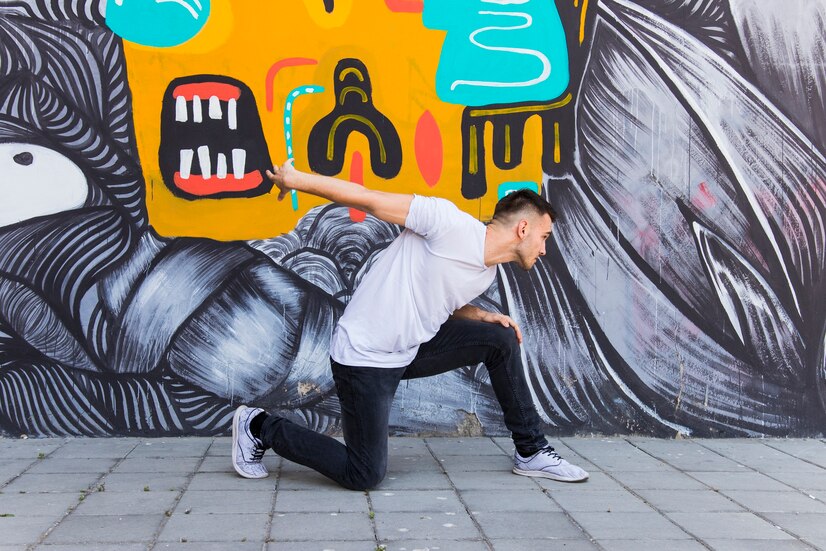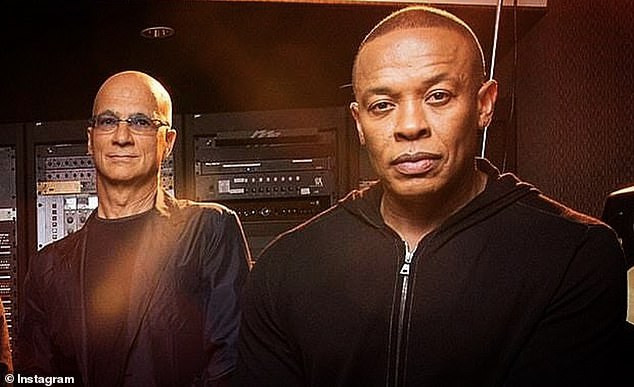
Intellectual Property Rights Through Copyrights And Trademarks
In the music industry, Copyrights and Trademarks are crucial elements that should always be noticed and addressed. For hip hop artists who are busy creating music and promoting their work, it’s easy to get caught up in the creative process and overlook the importance of Copyright. However, having a Copyright is just as important as publishing and licensing when it comes to ensuring long-term commercial success of future hip hop music.
Copyrights provides legal protection for your creative work, such as your music and lyrics. Without a Copyright, your work is open for anyone to use or steal without your permission. It could result in significant financial losses and even put your livelihood at risk. By securing a Copyright, you can establish your ownership of the work and prevent others from using it without your consent.
To secure a Copyright, artists need to follow a specific process. It can involve registering with the appropriate copyright office and paying a fee, among other steps. While the process may seem daunting, it’s essential to take the time to understand and follow it to protect your intellectual property.
In addition to providing legal protection, Copyrights also offer various benefits to future hip hop artists. It helps establish your credibility and reputation in the industry, making it easier to secure future opportunities and collaborations. A Copyright can also provide a steady stream of income through licensing and royalties, ensuring that you are fairly compensated for your hard work and creative talent. In short, understanding and prioritizing Copyright is crucial for any artist looking to build a successful career in the music industry.
What Does Copyrighting Your Stuff Mean for Hip Hop Artists?
The priority for hip-hop artists should be to understand the process of copyrighting music to ensure the long-term protection of their creative work. Without a copyright, your music is vulnerable to theft and unauthorized use, which could result in significant financial losses. It’s crucial to take proactive steps to secure a Copyright before offering your music for licensing. Your future hip hop music’s protection depends on the copyright.
The way to protect your music is by registering for an official Copyright with the United States Copyright Office. It involves creating an eCO account and providing the necessary details to ensure that both the composition and sound recording of your music are copyrighted. Although this process may involve a fee, it’s a small price to pay to protect your intellectual property and secure your income.
While registering for a Copyright is an essential step, it’s not the only aspect of Copyrighting that artists need to consider. It’s important to understand the various elements of copyright law that could come into play and affect your work. It includes factors such as fair use, public domain, and licensing agreements. By staying informed and up-to-date on copyright laws, artists can ensure that their creative work remains protected and secure.
In conclusion, artists should prioritize the process of copyrighting their future hip-hop music to safeguard their intellectual property and protect their income. While this process may involve a fee additional considerations such as fair use and licensing agreements, and taking the time to understand and follow copyright laws are also essential for long-term success in the music industry.
What Does A Copyright Offer To Hip-Hop Musicians?
Before signing any contract, it’s crucial to have a legal professional review and approve it. Even if you can’t afford a private attorney, organizations like the Volunteer Lawyers for the Arts offer affordable legal consultation for independent hip hop artists. It’s important to seek legal advice because contracts can be complex, and without proper understanding, you may be unwittingly agreeing to terms that are not in your best interest.
It’s essential to fully comprehend the details of any contract before signing it. A contract can have far-reaching implications, and it’s critical to ensure that you are fully aware of what you agree to. Engaging the services of a legal representative is the best way to protect yourself and avoid any potential legal issues down the line.
There’s no need to feel embarrassed about seeking legal advice or being unable to afford a lawyer. Legal representation can be prohibitively expensive, and many organizations exist to help artists navigate the complexities of the legal system. By taking the time to understand your legal rights and obligations, you can make informed decisions about your career and protect yourself from any potential harm.
However, before signing any contract, it’s crucial to have a legal professional review and ensure that you fully understand its implications. Whether through a private attorney or an organization like Volunteer Lawyers for the Arts, seeking legal advice is essential to protect yourself and your interests.
What Does A Trademark Offer To Hip-Hop Artists?
Trademarking is a crucial step in protecting your brand and identity as an artist. Trademarks can apply to various aspects of your brand, including your stage name and other features. However, before you can trademark your stage name, you need to ensure that it doesn’t infringe on any existing trademarks.
If your stage name does infringe on an existing trademark, it’s important to change it and then proceed with trademarking your new name. This step is critical because failing to trademark your name can leave a significant part of your brand vulnerable to being copied or stolen by others.
Don’t let your hard work and creativity be compromised by failing to protect your brand. Take the necessary steps to ensure that your name and other brand features are properly trademarked and safeguarded against infringement. By doing so, you can establish a unique and recognizable identity in the music industry and avoid potential legal issues in the future.
Intellectual Property Infringement
Artists often need help with the issue of their music being misused or wrongly attributed, which can be a frustrating and damaging experience. Fortunately, there are tools available to help you monitor your music and protect your reputation. One such tool is Google Alerts, which allows you to track mentions of your music online.
To get started with Google Alerts, create a new account specifically for your alerts and set up filters to direct all alerts to a dedicated folder in your regular email account. This way, you’ll be instantly notified whenever your music is mentioned online, allowing you to stay on top of any potential misrepresentations or false discussions.
By using Google Alerts to monitor your music online, you can take proactive steps to protect your brand, future hip hop productions, and ensure that your work is properly attributed and respected. Don’t let others take credit for your hard work and creativity – use the available tools to stay informed and in control of your online presence.
What Are The Essential Steps To Follow To Avoid Infringement?
Let’s look at some steps to avoid infringement in the hip-hop industry.
Trademark
- Conduct A Trademark Search
Before using a particular brand name, logo, or artist image, it’s important to conduct a thorough search to ensure that the same or a similar mark isn’t already in use. It can be done through a trademark search at the United States Patent and Trademark Office (USPTO) website.
- File A Trademark Application
Once you’ve determined that the trademark is available, the next step is to file a trademark application with the USPTO. This application can be filed online or through the mail.
- Respond To Any Office Actions
After submitting your trademark application, the USPTO will review it and issue an office action if there are any issues or concerns. You’ll need to respond to these office actions and provide any additional information or evidence requested.
- Maintain Your Trademark
Once your trademark is registered, you’ll need to maintain it by filing periodic renewal applications and ensuring that it’s being used properly in commerce.
Copyright
- Create An Original Work
Copyright protection is applied to original works of authorship, such as books, music, and artwork.
- Register Your Work
Although copyright protection exists as soon as the work is created, registering your work with the United States Copyright Office provides additional legal protection. You can register your future hip hop music online or through the mail.
- Monitor Your Work
Keep an eye out for any unauthorized use of your copyrighted material. You can use resources such as Google Alerts or hire a monitoring service to help you with this.
- Enforce Your Copyright
If you find that someone has used your copyrighted material without permission, you have the right to take legal action. It may involve sending a cease and desist letter or filing a lawsuit.
It’s important to note that these are just general steps, and the process of protecting your trademark or Copyright may vary depending on your specific situation. Consulting with a legal professional can help ensure that your rights are fully protected.
How To Ensure Royalty Management?
There’s one crucial aspect to be mindful of when it comes to your music that is very important. And that is Royalty Management, don’t overlook this, many individuals tend to overlook managing their royalties while managing their music. Safeguarding your music is of utmost importance, and you can achieve this with ease by seeking the services of renowned royalty agencies such as ASCAP, SESAC, BMI, and Sound Exchange.
These agencies ensure that you receive suitable compensation for the use of your music, eliminating the problem of people “borrowing” your music without compensating you. It empowers you financially and simplifies the process of earning money.
By utilizing the power of Copyright, you can enhance the potency of your business and establish yourself as a secure artist. Copyright protection is a battle that can take a considerable amount of time to resolve. However, by familiarizing yourself with the information we’ve just discussed, you can safeguard your long-term rights as an independent hip-hop artist and eliminate concerns about the unauthorized use of your name, work, or projects.
Subscribe to our newsletter and stay tuned to Is Hip Hop Dead for more exciting hip-hop entertainment news stories and updates.
Articles:
Copyrights Trademarks and Patents Secrets


